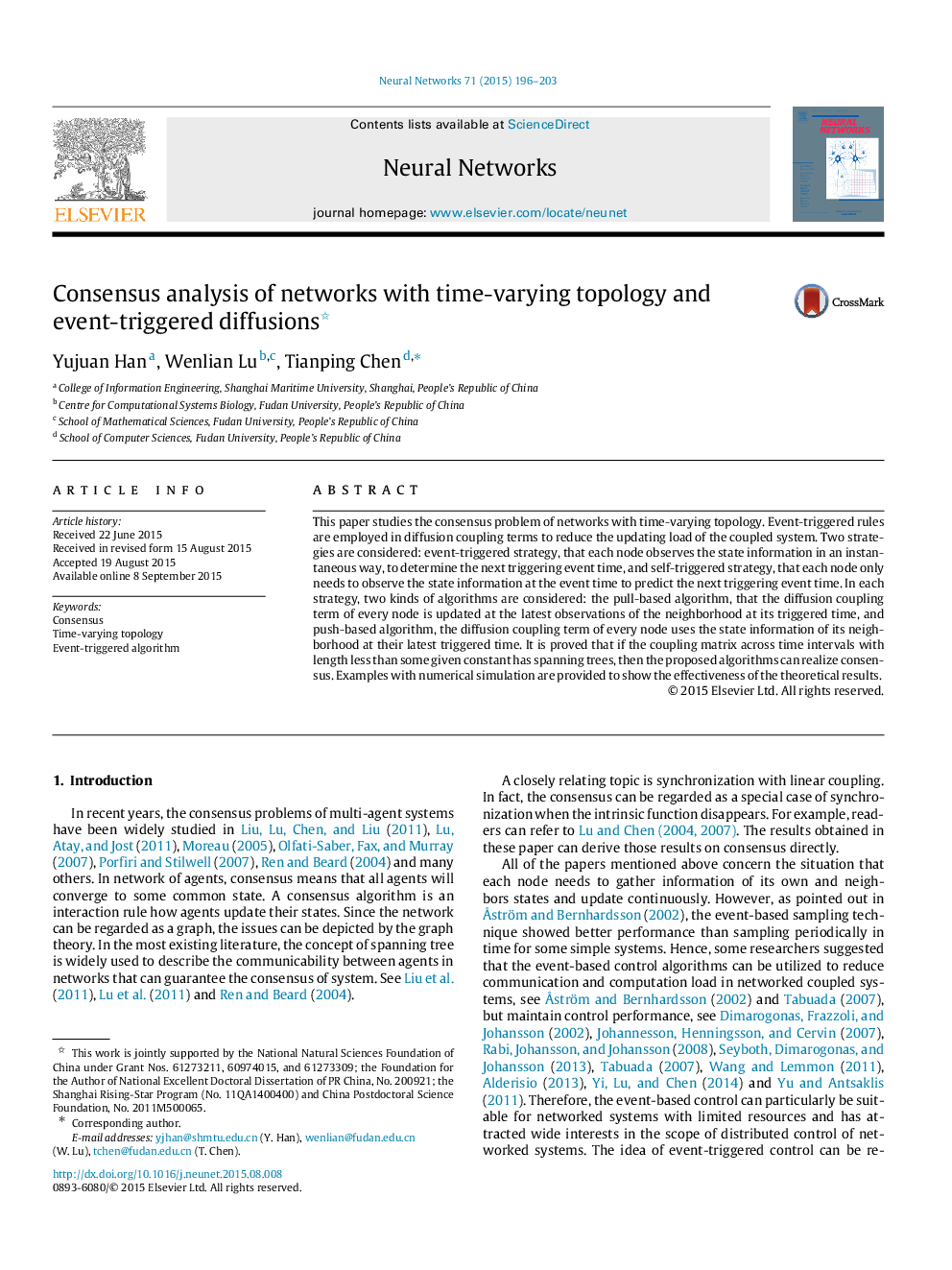| Article ID | Journal | Published Year | Pages | File Type |
|---|---|---|---|---|
| 403805 | Neural Networks | 2015 | 8 Pages |
This paper studies the consensus problem of networks with time-varying topology. Event-triggered rules are employed in diffusion coupling terms to reduce the updating load of the coupled system. Two strategies are considered: event-triggered strategy, that each node observes the state information in an instantaneous way, to determine the next triggering event time, and self-triggered strategy, that each node only needs to observe the state information at the event time to predict the next triggering event time. In each strategy, two kinds of algorithms are considered: the pull-based algorithm, that the diffusion coupling term of every node is updated at the latest observations of the neighborhood at its triggered time, and push-based algorithm, the diffusion coupling term of every node uses the state information of its neighborhood at their latest triggered time. It is proved that if the coupling matrix across time intervals with length less than some given constant has spanning trees, then the proposed algorithms can realize consensus. Examples with numerical simulation are provided to show the effectiveness of the theoretical results.
